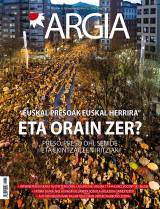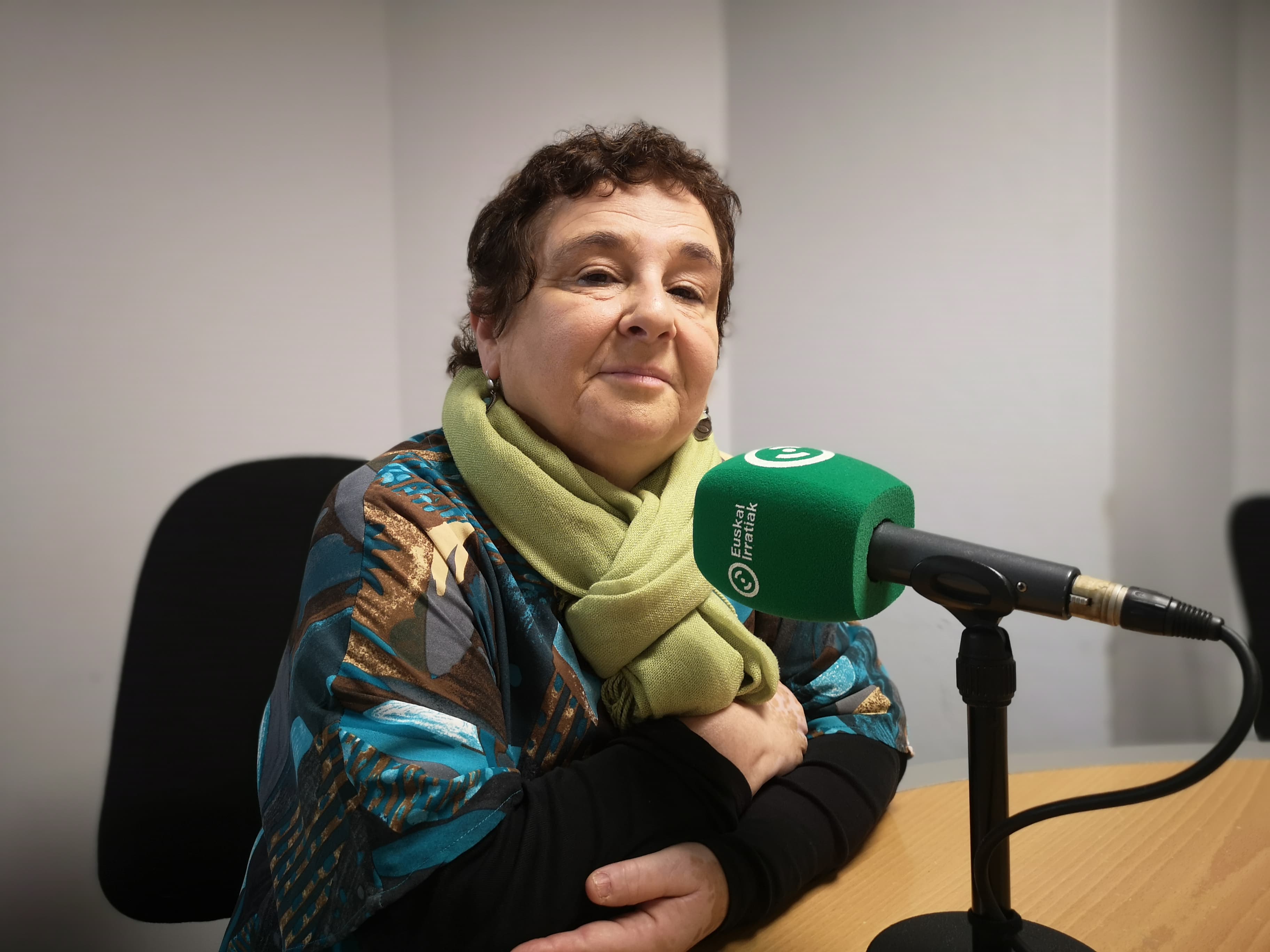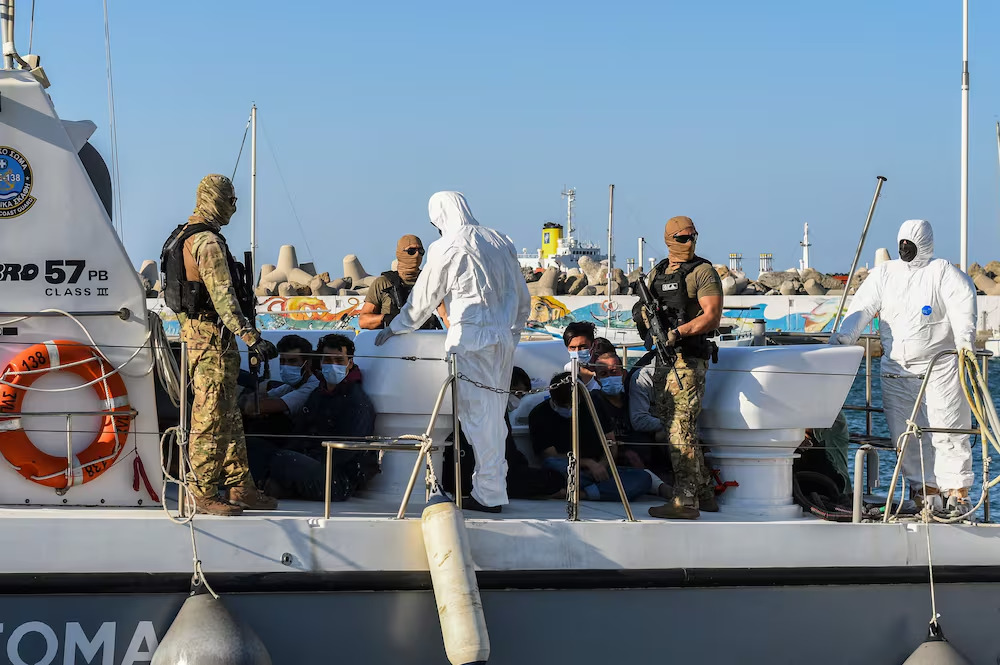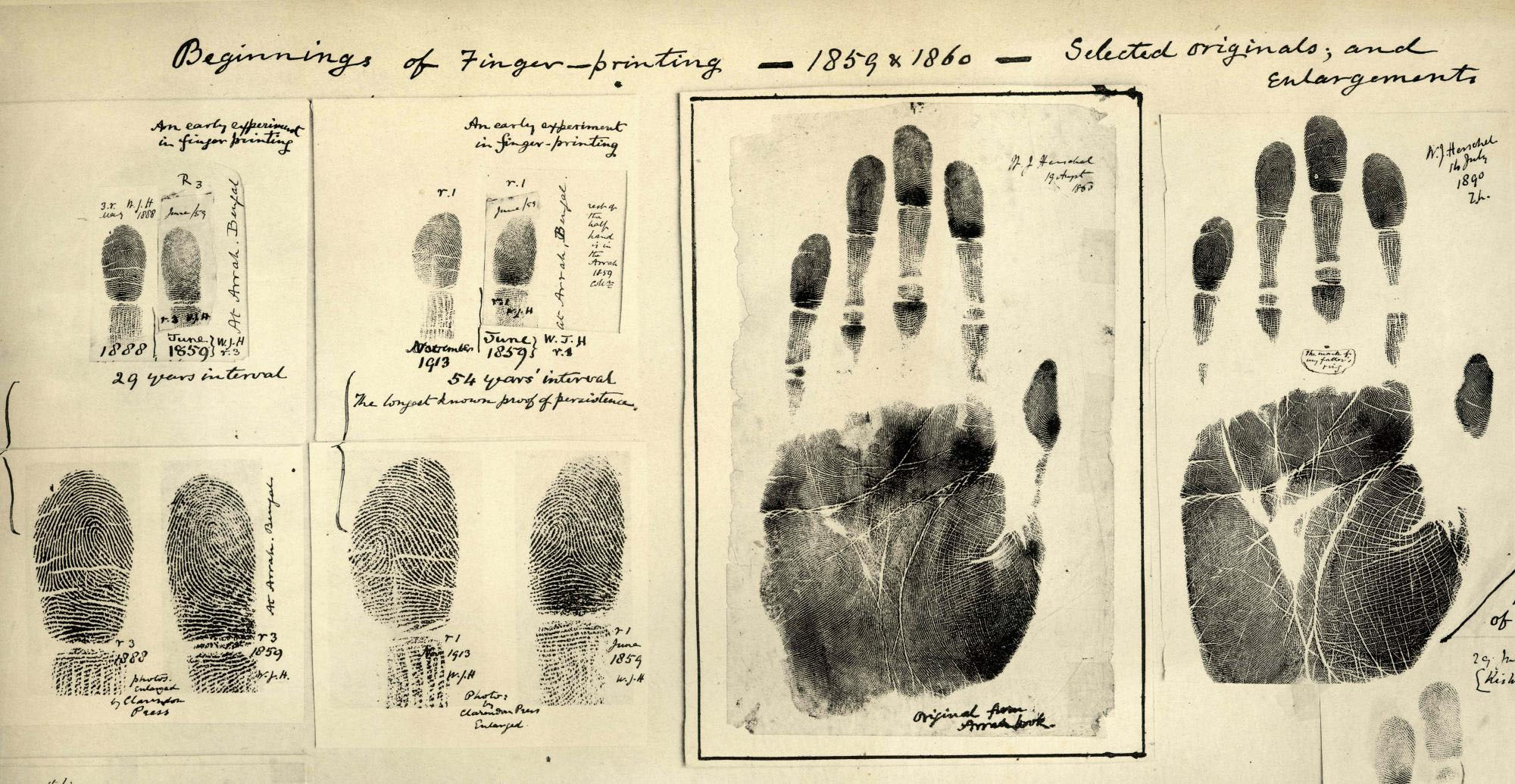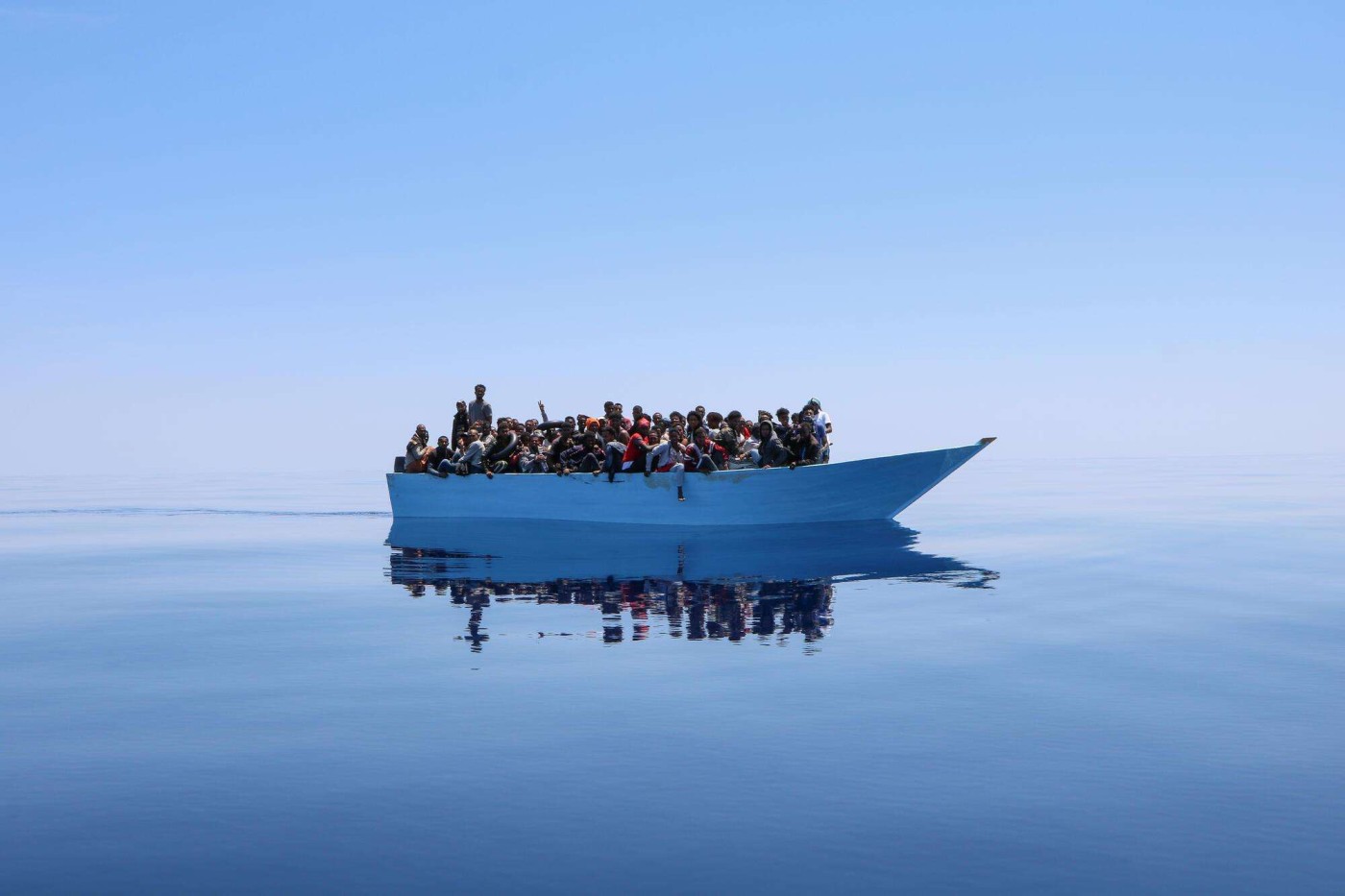"What happens in the Mediterranean is not a drama, it is a crime"
- To Kyma. Arantza Díez (Barcelona, 1975) is the director of the documentary Rescat al mar Egeu. The author narrates his experiences in Lesbos, a book that aims to be more than a journalistic chronicle.
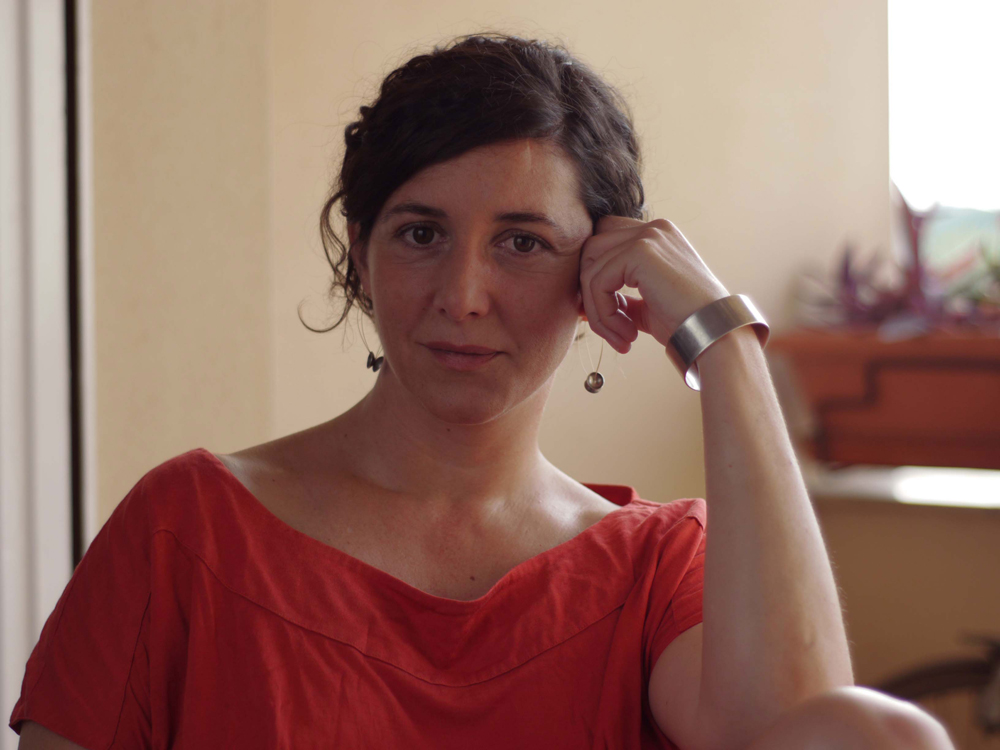
How and when did you get a chance to go to Lesbos?
To Kyma. Rescat to the Egeu Sea (To Kyma. Rescue in the Aegean Sea) was the documentary proposed to me by the deputy director, David Fontseca. I thought it was a great opportunity, because what was happening in Lesbos at that time was still a secret, and of course it was a terrible finding.
What did you find when you got there?
I read a lot about what was going on before I left. I made a kind of dive. I remember a special issue that came out of Time magazine about Lesbos. But when I got there, it was terrible. Photos and words fall short when living their cruelty. When I came back, my media diet radically changed. I totally lost interest in Catalonia’s political up-to-date and have not yet recovered it.
To what extent has the context changed this year?
The greatest change has taken place in the agreement reached in March between the European Union and Turkey, among other countries. It is clear that the mafias that allowed 8,000 people to leave Turkey were supported by the security forces. Indeed, the flow has been interrupted after the pact. People are still coming, but not at all as they were arriving in October 2015, when I was there.
What do you think of the pact?
As well as being illegal, it is unfortunate because it deals with the lives of human beings. Well, it's not new, the southern border model of Spain is exportable: Spain pays Morocco to break the flow of money through Morocco. The same thing has happened there, which has been a punishment for thousands of people. Setting limits is never a solution, and as long as the original problem is maintained, people will continue to stumble. It is very serious: it is not a question of the free movement of goods, but of the free movement of persons, which is a basic right enshrined in the International Declaration of Human Rights, in the Geneva Convention and within the bounds of European Union law. Impunity has no limits.

How is it possible that the European Union does not take steps in this situation?
There are now 62,000 people trapped in Greece. Of these, 16,000 have reached through the Aegean Sea following the agreement reached between Turkey and the EU, as reported by the Community Executive. Their status is therefore administrative detention. The rest of the nearly 50,000 refugees, on the other hand, are in refugee areas in Greece. In this context, I find it surprising that Europe is not able to find a solution at all this time.
And that is that, here and there, eleven cities are ready to host thousands of refugees for a long time. But that is not going to happen until Europe changes its attitude.
Well, it's very nice that it becomes a city of refuge, but if that produces real pressure. We have to go further. In Catalonia, as in the rest of Spain, the municipalities of many cities are working, of course. However, it seems to me that I lack strength. There are many interesting associations working in this direction, but the pressure must be born from society, becoming political pressure and from public institutions to autonomic, and from autonomic to state institutions.
What do you think of the follow-up of journalism on refugees?
I am self-critical and I must acknowledge that I myself have often used inadequate terminology. We are talking about the refugee crisis, when the crisis is that of society or the European Union. What is happening in the Mediterranean is not a drama, but a crime. It is essential in all matters, but above all in this matter, that journalists use the right words to do our work with correctness. And journalists, not the media, have failed.
What can journalism do?
There are no journalists asking the appropriate questions. In the media of the European Union, journalists from international departments are not interested in the politicians of public bodies taking on their responsibility. How is it possible that it is not yet known how many people have been deported by Greece following the agreement between the European Union and Turkey? Or how can there be no information about the more than 10,000 missing children in Europe? Journalism is the only means we have right now for power to take responsibility, and unfortunately, journalists in the most important media do not do their job.
What reception has the book Lesbos had, with an obert (Lesbos, with an open heart)?
At the moment, she has had a small spin, as she is only in Catalan. I would also like to write in Spanish, because it seems to me that history can be disseminated. So I have now only received the inputs from the people who have read more than the quantities sold. And they really liked it. It is easy to read and many have told me that they have been moved ...
“Lesbosetik itzuli nintzenean nire izatearen zati bat gelditu zen han. Bizitzarekiko ikuspegia aldatu zitzaidan erabat. Nik zurekin kafea hartzen dudan bitartean pentsatzen ari naiz, adibidez, han sorosle talde bat ari dela patera batean doazen 1.000 lagun erreskatatzen. Baina, zoritxarrez, han gertatzen dena ez da ezagutzen kazetariok azaltzen ez badugu. Eta nik, kazetari naizen heinean horretaz idazteko beharra dut erraietan”.
"Segurtasun gehiago, inmigrazio gutxiago". Bruno Retailleau barne ministro frantsesa argi mintzatu da, kargua hartu berritan. Etorkinen gaineko kontrola azkartu nahi du Michel Barnier lehen ministro eskuindar-kontserbadorearen gobernuak, eta jada Retailleauk aitzinatu... [+]
Europar Batasunean berriki onartu den Migrazio Itunak, asko zaildu dizkie gauzak euren herrialdetik ihesi doazen eta asiloa eskatzen duten pertsonei. Eskuin muturraren tesiak ogi tartean irentsita, migratzaileentzako kontrol neurri zorrotzagoak onartu dituzte Estrasburgon,... [+]
Migratzaileen kopurua anitz emendatu da Irun eta Hendaia arteko pasabidean. Irungo Harrera Sareak ohartarazi duenez, otsailean 600 pertsona lagundu dituzte, iaz, urte osoan 2.700 izan zirelarik. Iragan urtarrilean, 2.700 etorkin heldu dira Kanariar Uharteetara, egunero 80... [+]









